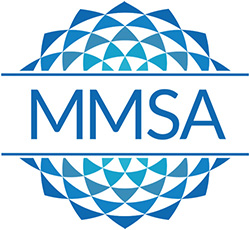The National Science Foundation (NSF) has awarded a three-year $469,369 grant to improve access to computer science instruction by Maine high school students. This project is led by the Maine Mathematics and Science Alliance (MMSA) in partnership with RSU 26 (Orono) and the University of Maine at Augusta (UMA). Maine business partners include Axiom Technologies, The Jackson Laboratory, the Mount Desert Island Biological Laboratory, Kepware Technologies, and LL Bean.
In Maine, and nationally, teaching and learning computer science at the high school level is sparse and fragmented. The relative neglect of computer science education at the high school level is well documented. However, there is a huge and increasing need for STEM workers who are well-versed in computer science. Computer science occupations in Maine are expected to experience extreme growth between now and 2018. For example, Maine needs 1,777 new CS workers with 2-year college degrees by 2018, yet estimates that only 210 of these workers will be produced.
Maines’ university system graduates about 4,350 bachelors students a year. In 2012, the University of Maine system produced 43 bachelors degrees in computer science, only ten of which were awarded to women. This rate of production is insufficient to fill the vacancies available each year at just one of Maine’s major computer science companies, let alone fulfill the state’s needs. STEM businesses are desperate for well-educated workers who can replace the silver tsunami of retirees exiting the workforce. In fact, some business leaders have called for all new college graduates to have some background in the basics of computer science, including the ability to think algorithmically. The key to much-needed growth is to get more students engaged in computer science before they reach college.
”Ultimately, the problem were addressing is getting younger students to the point where they might seriously consider pursuing a computer science degree or a computer science-related career,” said MMSAs Dr. Tom Keller, the grants principal investigator. Dr. Glenn Cummings, the new President of University of Maine at Augusta, believes that this project is a key step in developing pathways from high school into the study of CS at college. He said UMA produces the second largest number of CS graduates in the UMaine system, and we are delighted to extend our work to the area of teacher professional development.
The project builds upon the existing, highly successful, research-based Exploring Computer Science (ECS) curriculum and teacher professional development materials. The major goal of the project is to prepare 75 high school teachers to implement ECS with high school students throughout Maine. The project will also build, grow, support, and sustain a community of high school computer science teachers and will work with Maines Department of Education to develop educational policies that encourage teaching and learning of computer science.
Five business partners from Maine will participate to incorporate workplace computer science examples into the professional development program for teachers. Joanne Harriman, Superintendent of Schools at RSU 26 (Orono) and Co-Principal Investigator, will establish a model site and lead teacher recruitment. Dr. Joseph Szakas, Vice President of Academic Affairs and Provost at the UMA, is responsible for development and implementation of a computer science methods course. This work is supported by NSF grant #1440464.


